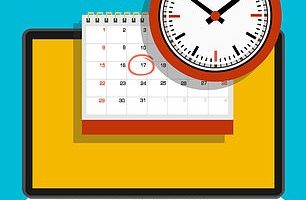MANY self-employed workers may be struggling to get by if their incomes have taken a blow under England’s third lockdown.
But help is available as part of government measures to help workers through the Covid crisis.
⚠️ Read our coronavirus live blog for the latest news & updates
Self-employed workers can access support through the self-employment income support scheme (SEISS).
This gives grants to help those who work for themselves if their income has been negatively impacted by the pandemic.
The scheme was first rolled last year, with workers flocking to apply for the extra cash from May.
Applications for the first grant closed on July 13, 2020.
The second grant, worth up to £6,570, opened for applications on August 17 and closed on October 19, 2020.
In September, the self-employed scheme was extended to help workers during the winter, with the third grant covering November to January.
But is there a fourth grant? Here’s what we know so far.
Will there be a fourth income support scheme?
Yes – Chancellor Rishi Sunak has confirmed that there will be a fourth grant.
In an economic update to the House of Commons yesterday, he announced the extended scheme along with another raft of support measures to prop up struggling Brits.
The fourth grant will run from February to April.
So far, almost three million people had applied for SEISS, taking the support dished out by government for self-employed workers to nearly £20bn.
Rishi also warned Brits to expect the economy to “get worse before it gets better”.
How much help will be available?
So far, the government has not given out further details about how much help you can get under the fourth grant.
The Treasury has said that it will give more information in due course.
The Sun contacted the Treasury for extra details on the scheme, and we will update you as soon as we can.
It’s best to check in on the government’s SEISS guidance online for more details as and when they come through.
Who can claim?
As the fourth grant covers February to April, you can’t apply for it yet.
You can, however, apply for the third grant.
The government will cover 80% of your trading profits over three months.
This means self-employed workers could claim up to £7,500.
The third scheme marks a boost from the previous grants, as self-employed workers were only set to receive government grants worth 40% of average monthly profits from November through to January 2021.
But you can only get the help if you were eligible for the first and second grant – even if you didn’t apply for it.
To be able to make a claim, you must show that you are currently trading but have been impacted by reduced demand due to the pandemic.
Alternatively, you must declare that you have been trading but are temporarily unable to do so because of Covid.
You must show that you have been impacted by coronavirus between November 1 2020 and January 29 2021.
You are eligible for help if you filed a tax return for 2018/19 on or before April 23 2020, and you must also have been trading during the 2019 to 2020 tax year.
Also, you must also declare you intend to continue to trade.
And you must declare you reasonably believe there will be a significant reduction in your trading profits during November 1 to January 29.
Make sure to have your evidence at hand, as you must prove that your business has been impacted.
What could affect my application?
HMRC will work out if you’re eligible for help.
The department will do this by looking at your 2018 to 2019 Self Assessment tax return.
Your trading profits must be no more than £50,000 and at least equal to your non-trading income.
If you’re not eligible based on this, then HMRC will look back at the tax years 2016 to 2017, 2017 to 2018, and 2018 to 2019.
Keep in mind that your eligibility could be affected if:
- Your tax return is late, amended or under enquiry
- You’re a member of a partnership
- You’ve had a new child
- You have loans covered by the loan charge
- You claim averaging relief
- You’re a military reservist
- You’re non-resident or chose the remittance basis
- You have state aid
What other help is there for self-employed workers?
THE government has also introduced the following measures to help self-employed workers and businesses during the coronavirus outbreak:
Income-tax deferrals: Self-assessment income tax payments, that were due in July, can be deferred to the end of January next year.
Rent support: Businesses who were struggling to pay their rents were protected from eviction until the end of June.
Coronavirus business interruption loan scheme: SMEs can get loans and overdrafts of up to £5million for up to six years and the government will guarantee up to 80 per of these.
Grants of up to £10,000: Small firms can get grants of up to £10,000 to help with ongoing business costs.
VAT payments: VAT payments can be deferred for three months.
Tax bill help: SMEs that cannot afford their tax bills can ask HMRC for a “time to pay” arrangement so any debt collection is suspended.
Business rates holiday: A 12-month business rates holiday has been introduced for many businesses.
How do I claim?
The third grant scheme is still open but you must apply via the Gov.uk website on or before January 29.
Make sure you have the following info before you get started:
- Self Assessment Unique Taxpayer Reference (UTR) – if you do not have this find out how to get your lost UTR here.
- National insurance number – if you don’t have this find out how to get your lost national insurance number here.
- Government Gateway user ID and password – if you do not have a user ID, you can create one when you make your claim
- UK bank details (only provide bank account details where a Bacs payment can be accepted)
If you need extra help during lockdown, here are six ways to get support from furlough to sick pay.
And if you file your self-assessment tax return late this year, HMRC will waive your fine – but only if this is because of Covid.
Struggling to make ends meet under Universal Credit? Here’s how you could get a budgeting advance of £812 to get by.
This post first appeared on thesun.co.uk























